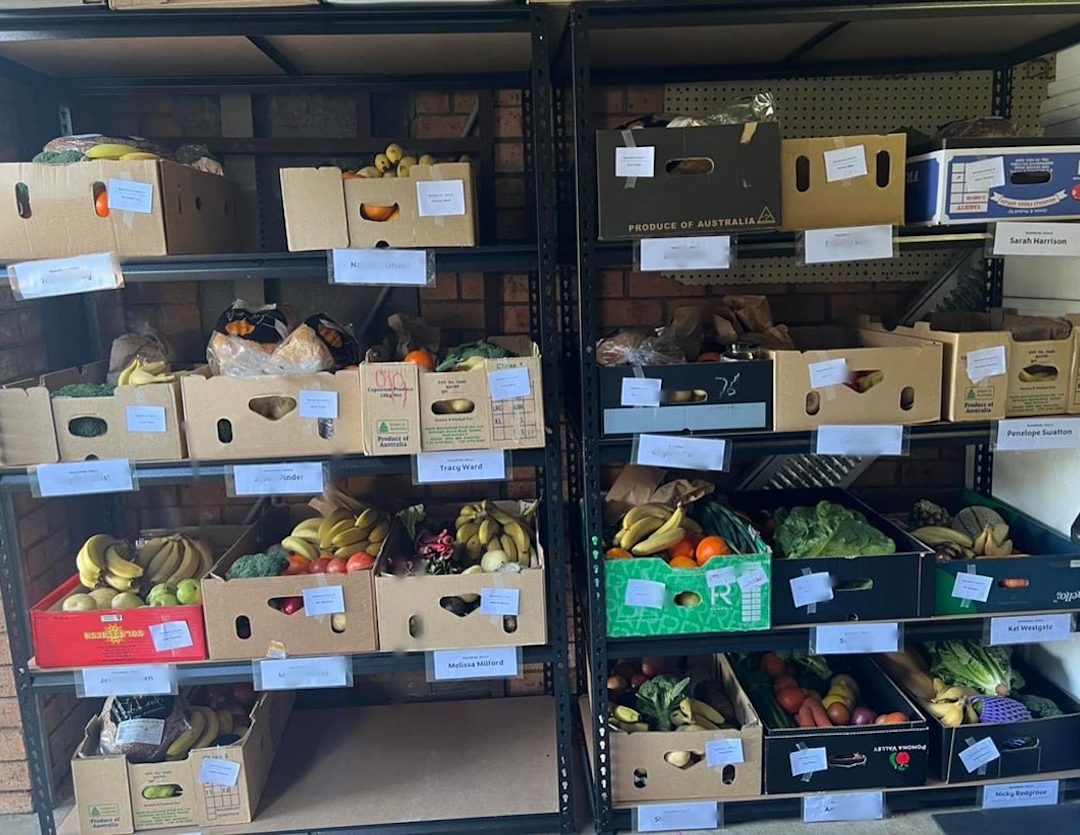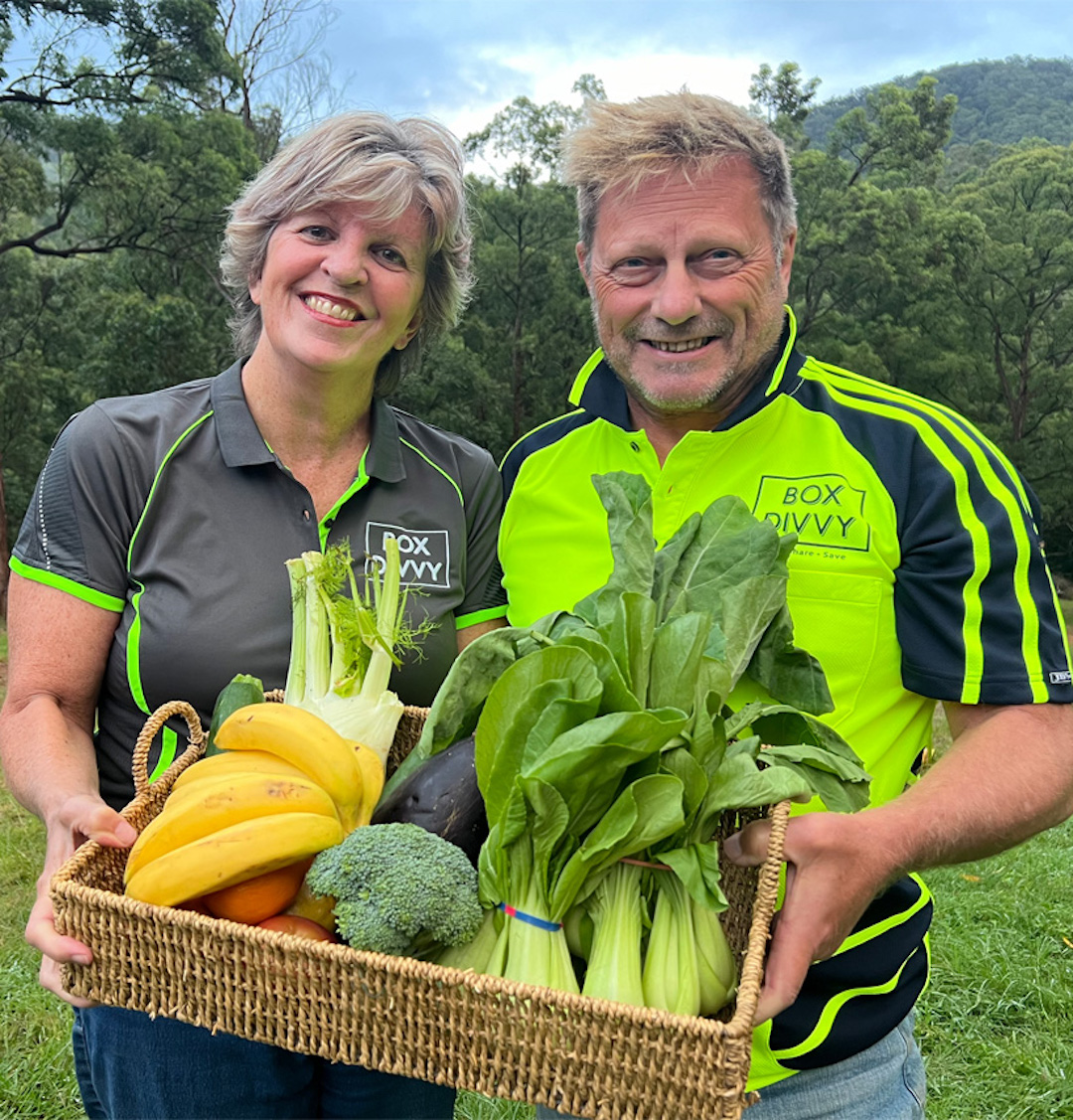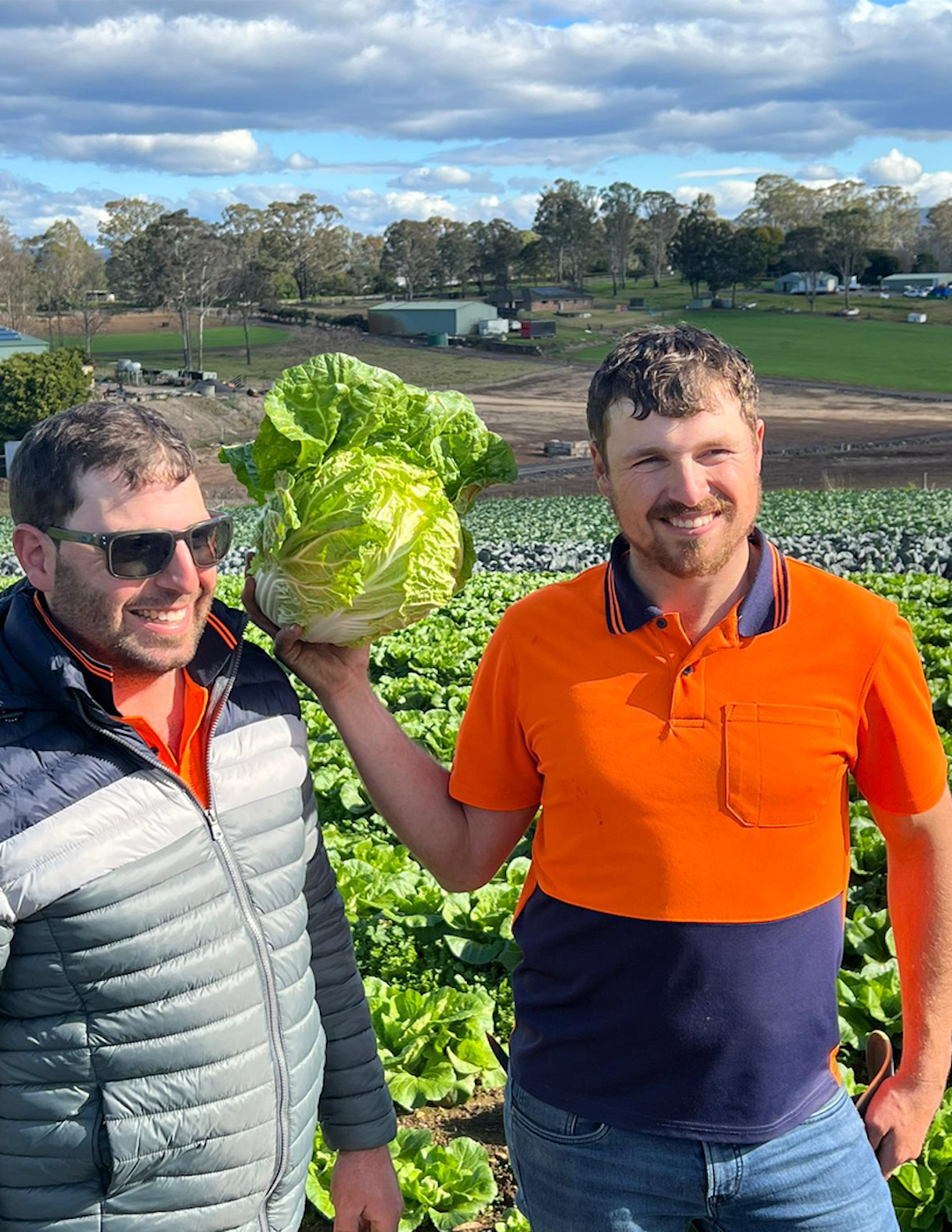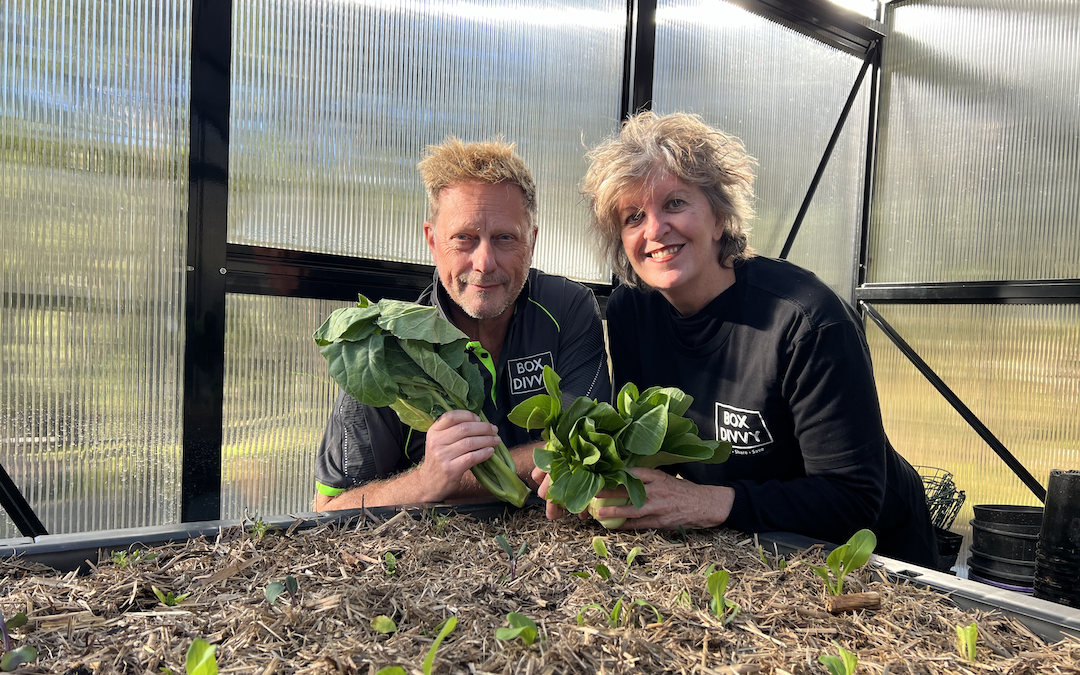Box Divvy is the company connecting farmers and growers with local communities to help them cook and eat clean for less.
The social enterprise is all about delivering the best quality locally grown produce, working with their customers to reduce waste and embrace fresh food.
Currently, they are concerned with the need for growers to prioritise fresh produce over canned fruit, as Woolworths has reportedly turned its attention to imported produce.
Clean and green
Box Divvy is an alternative to supermarket shopping, delivering Australian-grown seasonal fruit and vegetables straight from farms to local communities.
Partners Jayne Travers-Drapes, and Anton van den Burg, started Box Divvy five years ago while living and working on a farm.
“We started the business as a response to our experience working with the Western Sydney diabetes food group,” explains Jayne. “Diabetes 2 is one of the biggest diseases in Australia because of the amount of junk food we consume. And part of the problem is that people have forgotten how to use fresh food. We wanted to create a scalable, resilient, and cheap way to access this fresh produce and it just took off.”

Fresh produce at the Hub and ready for pickup.
Box Divvy works through a series of Hubs, each containing around 55 families.
“A Hub is a carport or garage which neighbours can join using the Box Divvy app. The person running the Hub, known as a Hubster, customises and submits the weekly Hub order. Each week members have a three day order cycle in which they customise their order. What sets us apart from other produce services is that we’re not box by box. Hubs only need to meet the minimum order requirement for each product – such as three bunches of bok choy per group – after which they can decide how much more to order.”
“There’s usually extra produce after the divvy. Quite often, members opt to place these in a kindness box which will go to a different family in need each week. It can also be donated to women’s shelters and community centres.”
Additionally, Box Divvy strives to facilitate better conditions for its farmers and growers. While most supermarkets pay producers 30 cents on the dollar, Box Divvy pays 60 cents on the dollar.
Hubsters also receive compensation for running the Hub, and members get their produce 30 percent cheaper than they would at a supermarket. This is because Box Divvy pack and deliver in bulk and use a system known as ‘just-in-time’ so no storage or distribution centres are required. Aside from lowering costs, this also ensures the food is always fresh and there is no waste.
“Each week we will ask the farmers what they are planning on harvesting, and that’s what we put on offer for the next cycle. This ensures the produce is always fresh as can be!” says Jayne.
Box Divvy currently operates more than 250 food hubs and supports 12,000 families in NSW and the ACT.

Anton and Jayne on their farm © Box Divvy
A canned craze
Currently, Box Divvy is focusing its attention on the importance of choosing fresh produce over canned goods.
According to a study conducted by the company, which compared canned pears to the real thing, it found that fresh pears were 65 percent cheaper on average. Similarly, they contained nearly 4 times the amount of fibre, and 80 percent more protein.
However, while fresh fruit and vegetables are significantly better for consumers, major companies are choosing to invest elsewhere. Woolworths recently announced its plan to cut the cost of canned fruit by relying on imports, causing Australia’s largest cannery, SPC, to cut its intake of peaches and pears by over 40 percent. The Shepparton based company is facing heightened competition from cheap imports and cost of living pressures
“Consumers are opting for less expensive products from countries like South Africa and China, leading SPC to reduce orders. As a result, growers face tough decisions regarding their crops. Clearly, they cannot compete with cheap imports, and it is the farmers who are paying the price,” says co-founder of Box Divvy, Anton van den Berg.
Fresh way forward
Despite this, Jayne and Anton want to emphasise the benefits that come when eating fresh.
“Buying fresh is good for your health, good for your wallet and good for the planet,” explains Jayne.
When it comes to farmers’ wallets, Box Divvy affords growers a number of opportunities including increased market visibility, fair compensation and support for sustainable farming practices
Van den Berg reveals that the potential profit for both growers and consumers is significant.
“It’s more than just backing Australian farmers; it’s about advocating for a fundamental shift towards prioritising fresh, locally sourced produce over canned alternatives. At Box Divvy, our focus is on providing consumers with the freshest, most wholesome produce available,” he explains.
“The canning process compromises both the flavour and nutritional integrity of fruit. By embracing the opportunity to supply fresh produce through Box Divvy, Shepparton farmers can help safeguard the quality of their harvests and contribute to the vitality of their communities.”
Similarly, farmers are encouraged to engage with the Box Divvy food hubs, where they can diversify their income streams and build meaningful relationships with the community.
“Working together, we can create a food system that’s both sustainable and rewarding for all involved. Fresh is the best on every level,” says Van den Berg.

Box Divvy farmers Daniel and Jason Vella.
Next steps
Jayne and Anton are thrilled with the progress their company has made so far, but they are keeping their eyes on the future. They believe that part of the reason people aren’t eating fresh is because they aren’t confident in the kitchen.
“Part of the key to encouraging people to eat fresh is teaching them how to cook,” says Jayne.
“We’re looking at launching a series where we interview farmers and suppliers so people can learn what goes into food production. And we also want to include a cooking segment, where our Hubsters submit the recipes they use at home. It’s everyday Aussies in their own kitchens, showing you how to work with basic ingredients.
“Our customers love learning about food. They love connecting with growers and trying new things.”
Additionally, Box Divvy is currently focused on improving its carbon footprint. Jayne and Anton are looking at installing solar energy in their trucks, and recycling soft plastics by partnering with another Aussie company.
Box Divvy has just moved into a bigger warehouse, where farmers deliver their produce each day to be sorted and sent to Hubs across NSW and the ACt. The aim is to double the customer base in the next year, including more growers and more people running the Hubs.
According to Jayne, “it only takes a few hours a week, and it’s a great way to build a sense of community.”
“The stories you hear from these communities are just amazing. They inspire us every day.”
To read about the company fighting Australia’s food waste problem box by box, click here.

